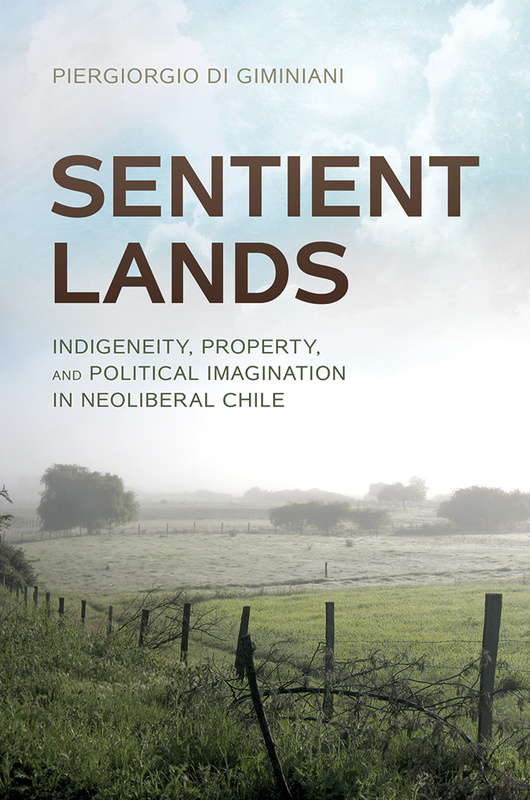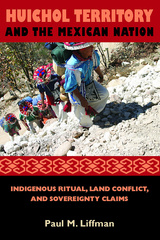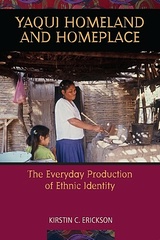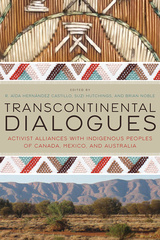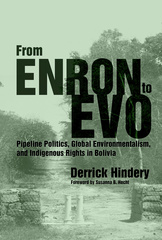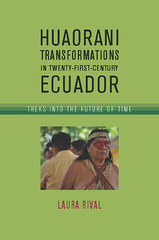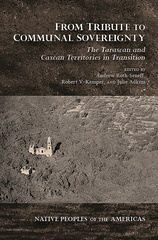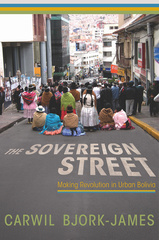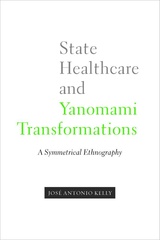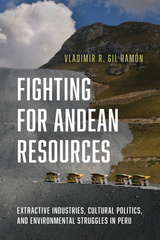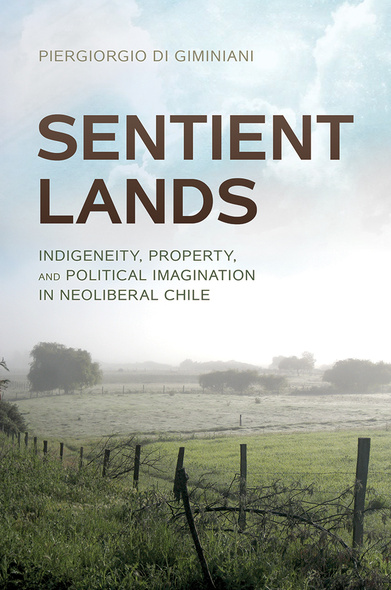
264 pages, 6 x 9
13 b&w photos, 3 maps
Hardcover
Release Date:20 Nov 2018
ISBN:9780816535521
Sentient Lands
Indigeneity, Property, and Political Imagination in Neoliberal Chile
The University of Arizona Press
In 1990, when Augusto Pinochet’s 17-year military dictatorship ended, democratic rule returned to Chile. Since then, Indigenous organizations have mobilized to demand restitution of their ancestral territories seized over the past 150 years.
Sentient Lands is a historically grounded ethnography of the Mapuche people’s engagement with state-run reconciliation and land-restitution efforts. Piergiorgio Di Giminiani analyzes environmental relations, property, state power, market forces, and indigeneity to illustrate how land connections are articulated, in both landscape experiences and land claims. Rather than viewing land claims as simply bureaucratic procedures imposed on local understandings and experiences of land connections, Di Giminiani reveals these processes to be disputed practices of world making.
Ancestral land formation is set in motion by the entangled principles of Indigenous and legal land ontologies, two very different and sometimes conflicting processes. Indigenous land ontologies are based on a relation between two subjects—land and people—both endowed with sentient abilities. By contrast, legal land ontologies are founded on the principles of property theory, wherein land is an object of possession that can be standardized within a regime of value. Governments also use land claims to domesticate Indigenous geographies into spatial constructs consistent with political and market configurations.
Exploring the unexpected effects on political activism and state reparation policies caused by this entanglement of Indigenous and legal land ontologies, Di Giminiani offers a new analytical angle on Indigenous land politics.
Sentient Lands is a historically grounded ethnography of the Mapuche people’s engagement with state-run reconciliation and land-restitution efforts. Piergiorgio Di Giminiani analyzes environmental relations, property, state power, market forces, and indigeneity to illustrate how land connections are articulated, in both landscape experiences and land claims. Rather than viewing land claims as simply bureaucratic procedures imposed on local understandings and experiences of land connections, Di Giminiani reveals these processes to be disputed practices of world making.
Ancestral land formation is set in motion by the entangled principles of Indigenous and legal land ontologies, two very different and sometimes conflicting processes. Indigenous land ontologies are based on a relation between two subjects—land and people—both endowed with sentient abilities. By contrast, legal land ontologies are founded on the principles of property theory, wherein land is an object of possession that can be standardized within a regime of value. Governments also use land claims to domesticate Indigenous geographies into spatial constructs consistent with political and market configurations.
Exploring the unexpected effects on political activism and state reparation policies caused by this entanglement of Indigenous and legal land ontologies, Di Giminiani offers a new analytical angle on Indigenous land politics.
Sentient Lands is a rewarding read that is both theoretically sophisticated and conceptually innovative. The book deserves to be widely read in anthropology and beyond for its contributions to indigenous studies, land rights, and neoliberal governance in Latin America.'—Joe Bryan, The Journal of Latin American and Caribbean Anthropology
'More than a compelling ethnography following one community’s process of land restitution, the book is an important meditation on the relationship
between competing ontological views about ancestral indigenous territory.'—Patricia Richards, Bulletin of Latin American Research
‘Di Giminiani offers a compelling and historically grounded exploration of Mapuche territorial claims. He illustrates the importance of understanding these claims in terms of both strategic engagement with neoliberal norms and embodied understandings of land as subject rather than object.’—Kathryn Hicks, Department of Anthropology, University of Memphis
‘Di Giminiani skillfully describes and analyzes the fragmentation and ambiguities within Mapuche farmers’ lived worlds using theoretical currents from anthropology (e.g., economic and political anthropology, landscape anthropology, and Amazonian and Andean studies) and beyond (e.g., geography and philosophy).’—José Antonio Kelly, author of State Healthcare and Yanomami Transformations
‘Deftly interweaving political economy, phenomenology, and the so-called ontological turn in the social sciences, Di Giminiani has produced an ethnography indispensable for understanding the potential role of Indigenous mobilization in the Anthropocene.’—Mario Blaser, Canada Research Chair in Aboriginal Studies, Memorial University of Newfoundland
Piergiorgio Di Giminiani is an associate professor of anthropology at the Pontificia Universidad Católica de Chile.
Acknowledgments
Introduction: Sentient Lands
Part I. People and Land
1. Historical Debts: Race, Land, and Nation Building in Southern Chile
2. Being from the Land: Place, Memory, and Experience
3. Working the Land: Environmental Anxieties, Care, and the Quest for Endurance
4. Owning the Land: Entitlement, Assimilation, and Other Dilemmas of Property
Part II. Land Claims
5. Mapping Ancestral Land: The Power of Documents in Land Claims
6. Negotiating Ancestral Land: Claimants, Bureaucrats, and the Realpolitik of Sacredness
7. The Future of Ancestral Land: Uncertainties of World Making in a Reclaimed Territory
Glossary
Notes
References
Index

